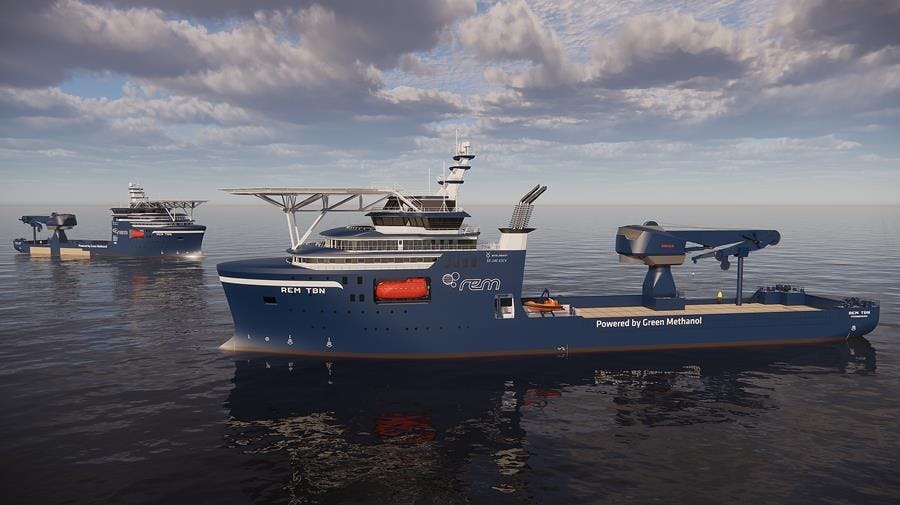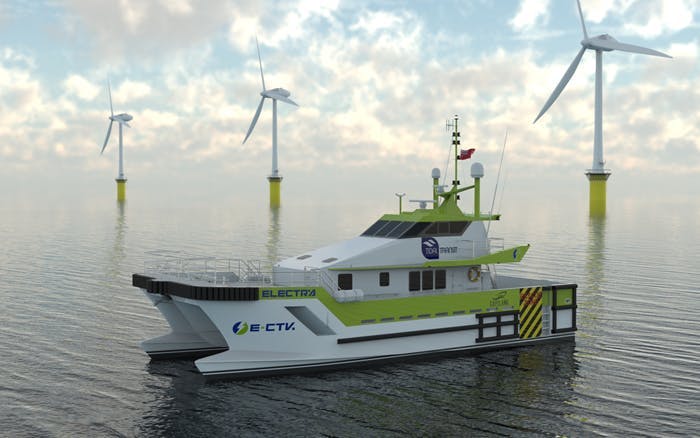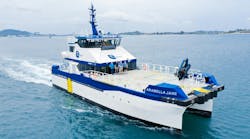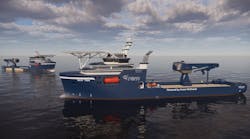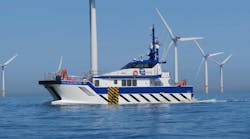By Jeremy Beckman
CASTROPOL, Spain/BERGEN, Norway — Bibby Marine has contracted Gondan Shipbuilders to construct a zero-emissions electric service operation vessel for the offshore wind sector.
The vessel, to be built in Asturias, northwest Spain, should be delivered in 2026.
It will feature an "advanced" battery system and dual-fuel methanol engines, with high-voltage offshore charging facilities to ensure the vessel can operate solely on battery power for more than 16 hours between charges.
HAF Power Solutions has commissioned Corvus Energy to supply energy storage systems for a new energy subsea construction vessel to be built for Norwegian shipowner REM Offshore.
The ST-245 design vessel will be able to perform heavy construction for offshore wind and subsea projects with net-zero emissions. It will have dual-fuel methanol engines and a 1.7-MW battery system, with the batteries used for spinning reserve and peak shaving and to regenerate power from the operation of lifting equipment onboard the vessel.
Ronny Pål Kvalsvik, chief commercial officer with REM Offshore, said, “When using an alternative fuel such as methanol, batteries play an even more important role as the response time for dual-fuel engines is slow. Increased energy storage capacity will allow us to more fully leverage the energy efficiency benefits of battery power, including the ability to regenerate energy from mission equipment onboard.”
Corvus will deliver its package during the first half of 2026 with the vessel set to go into operation later that year. Its contract also includes an option for equipment deliveries for a second vessel.
Volvo Penta will provide an Inboard Performance System (IPS) for what is claimed to be the world’s first retrofitted, electric crew transfer vessel. The company will supply a fully electric propulsion system, replacing the vessel’s combustion engines.
The Volvo Penta IPS will be powered 100% by batteries with no onboard diesel generators.
“It’s an ultra-efficient setup that will deliver longer-range and emissions-free transfers,” said Mehmet Belibagli, sales manager, Marine Commercial at Volvo Penta UK. “There’s also closer control and maneuverability so journeys are safer, faster and more reliable.”
Tidal Transit has commissioned the retrofit of the 20-m-long, diesel-powered vessel, to be renamed Ginny Louise, supported by a grant from the UK government.
The existing propulsion system will be replaced with a Quad Installation of Volvo Penta IPS 30 paired with fully electric motors and more than 2 MW of onboard battery capacity. Advantages of the IPS, according to the company, include improved movement and control, thanks to the forward-facing, individually steerable drives with twin counter-rotating propellers.
The Tidal Transit project will also include installation of new charging infrastructure via an onshore charging station and an offshore wind turbine-based charger, increasing the vessel’s range and the amount of time it can spend at work supporting crew transfers at an offshore UK wind farm.
05.01.2024

